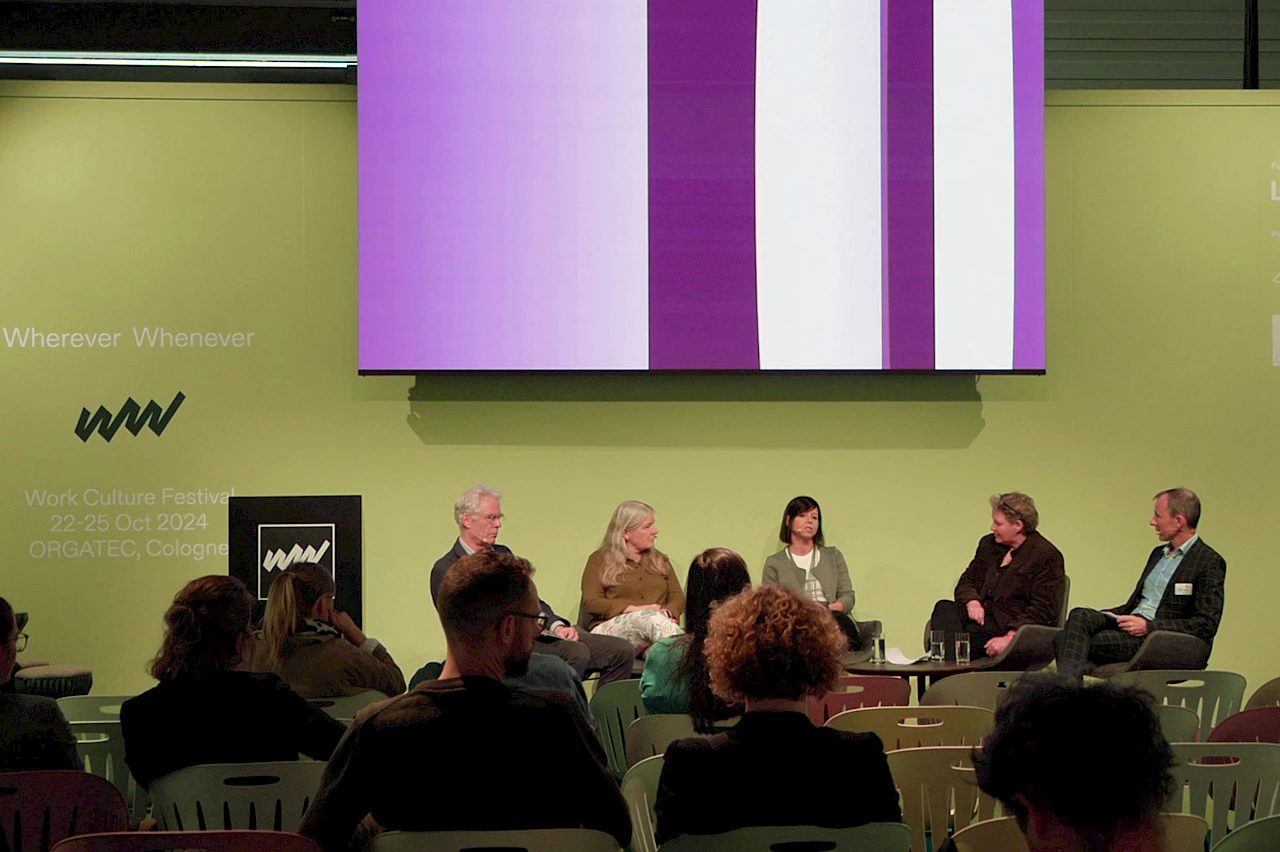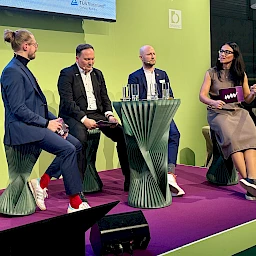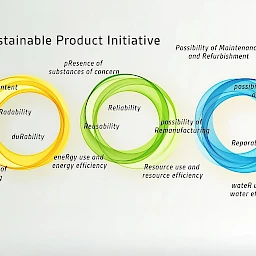The furniture industry is facing a fundamental transformation that is taking it towards more sustainability and circularity. In the EU project R‑evolve, which is receiving 5 million euros in funding from the European Commission, 23 partners from seven EU member states are working on innovative approaches to increase the recyclability and longevity of furniture. The project was presented at the Work Culture Festival in a panel hosted by Volker Wessels. The discussion highlighted the goals, difficulties and first steps of this ambitious project.
A pioneering EU project for the furniture industry
The EU project R‑evolve aims to develop and test innovative methods for reuse, recycling and circular design in the furniture industry. It anticipates many of the requirements of the EU’s Ecodesign for Sustainable Products Regulation (ESPR) adopted in May 2024 and thus creates a basis for practical and economically viable implementation. The German project partners include the German Interior Business Association (IBA), Darmstadt University of Applied Sciences, VS Vereinigte Spezialmöbelfabriken and the Association of the German Furniture Industry (VDM). They will participate alongside partners from Denmark, Belgium, Italy, Austria, Slovenia and Spain. The project is relying on close collaboration between science, industry and relevant stakeholders to drive the transformation of the industry.
Vision and goals of R‑evolve
The EU project R‑evolve brings together leading experts from science, industry and the legal sector to make the furniture industry more sustainable and better-prepared for the circular economy. At the Work Culture Festival, the panel participants Angelika Tisch, Irene Burroni, Martin Führ and Joan Knudsen gave an insight into the vision and goals of the project.
Angelika Tisch, an experienced scientist from Austria, is coordinating the project and is working intensively on assessing and reducing the environmental impact of furniture. She emphasized the need for the 23 project partners from seven countries to first develop a common vision to promote the circularity of the industry.
Irene Burroni, an innovation manager from Italy, moderates the exchange between companies, research institutions and consultants in order to develop new business models and design approaches. She sees R‑evolve as an opportunity to strengthen international cooperation and put circular strategies into practice.
Martin Führ, Professor of Environmental Law at Darmstadt University of Applied Sciences, is contributing his expertise in product and substance law. He emphasized the importance of the Digital Product Passport (DPP), which is an essential part of the EU Green Deal and is intended to create transparency throughout the entire supply chain — and not just for furniture.
Joan Knudsen, an architect and circular economy expert from Denmark, sees close collaboration between science and industry as a key to the successful implementation of R‑evolve. She emphasized the role of pilot projects in testing new approaches under real-life conditions and developing practical solutions.
The four-year project is pursuing a comprehensive approach to prepare the furniture industry for the upcoming EU requirements. The project focuses on the following areas:
- Circular design with a focus on modularity, repairability and durability
- Introduction of the Digital Product Passport, which provides information on the entire life cycle of a product and supports compliance with environmental standards
- Innovative business models, such as rental systems and extended services to tap into sustainable economic potential
- Regional networks that promote maintenance, repair and reuse in order to build a sustainable infrastructure
These approaches are not only intended to reduce the burden on the environment but also offer economic opportunities. “R‑evolve is an opportunity to make the industry fit for the future by closely combining innovation and practice,” explained Joan Knudsen. Angelika Tisch added: “The project will not only improve the recyclability of furniture but also reveal new ways in which companies can successfully implement sustainable strategies.”
Pilot projects: Practical solutions and opportunities for the industry
A key component of R‑evolve is a group of nine pilot projects that are being carried out in various countries to test circular business models and technologies under real-life conditions. For example, work is being done on take-back systems for used furniture, in which quality and hygiene are tested and methods for decontamination are developed. Another pilot project focuses on the introduction of the Digital Product Passport, which serves as a key tool for the circular economy and the upcoming EU requirements. “The pilot projects create synergies between companies and research partners and enable a practical transfer of knowledge,” explained Joan Knudsen, who is working closely with industry to implement the new approaches. The aim is to actively involve 50 companies over the course of the project and prepare them for the upcoming requirements. It also became clear that the implementation of these ambitious goals is associated with difficulties. These include the complexity of EU regulations, the necessary standardization and the coordination of the 23 project partners. At the same time, the project participants emphasized the opportunities arising from R‑evolve: “Companies that act early are not only able to secure a competitive advantage — they also actively contribute to the sustainable transformation of the industry,” says Martin Führ.
Collaborative approaches and a look at the future
One of the panel’s key themes was the importance of cooperation and community building. The success of collaborative approaches is particularly evident in countries such as Denmark, which has a long tradition of cross-sector cooperation in the textile and furniture industry. In Italy, however, the focus is on education and targeted training to prepare companies for upcoming regulations at an early stage. “The transformation to a circular economy requires a fundamental change in corporate culture, for which time is a decisive factor,” emphasized Irene Burroni.
The R‑evolve project builds on the success of established European initiatives such as the European Level certification, which has proven to be a uniform standard for sustainability in the furniture industry. This foundation creates the basis for setting new standards with the Digital Product Passport and other circular approaches. “We’re delighted to play a key role in shaping the future of the industry, not only with the Level certification, but also with this international cooperation,” emphasized Volker Wessels. The aim is to develop practical solutions and at the same time initiate a movement that will sustainably change the furniture industry. Angelika Tisch, Irene Burroni, Martin Führ and Joan Knudsen were unanimous in their assessment: “R‑evolve offers the opportunity to combine innovation with sustainability and make the industry fit for the future — environmentally as well as economically.”
The panel was moderated by Volker Weßels. Volker is expert for measurable and meaningful criteria for the environmental and social assessment of product, production facilities and organisations. He is responsible for sustainability matters in the German Interior Business Association (IBA) since 2014 and is active in European standardisation as an expert on sustainability and the circular economy. Furthermore, Volker is Head of European Level Program, which is the office furniture sustainability label awarded by the European Office Furniture Association (FEMB) and represents the IBA in the EU project R‑evolve. Further information: iba.online and https://www.levelcertified.eu/de/.
Cover picture: © IBA






